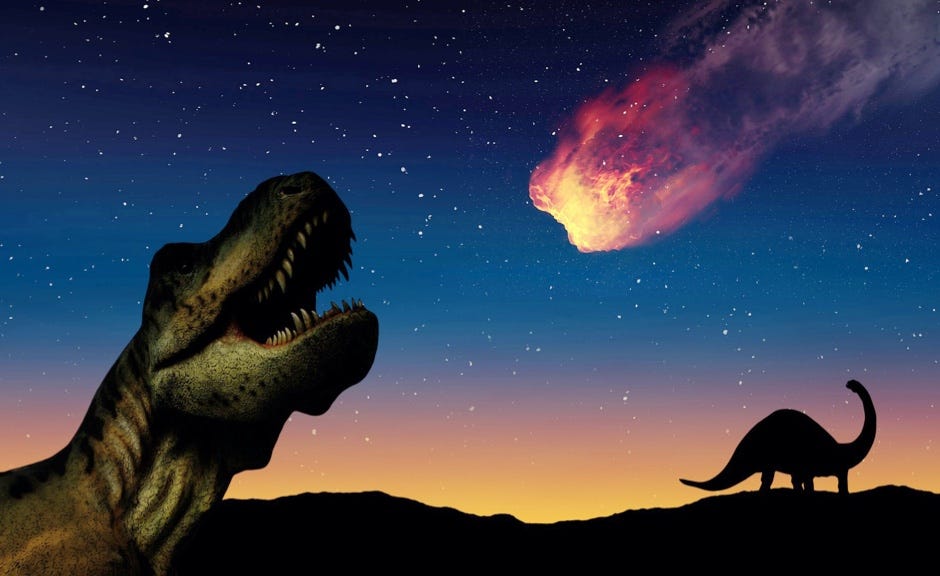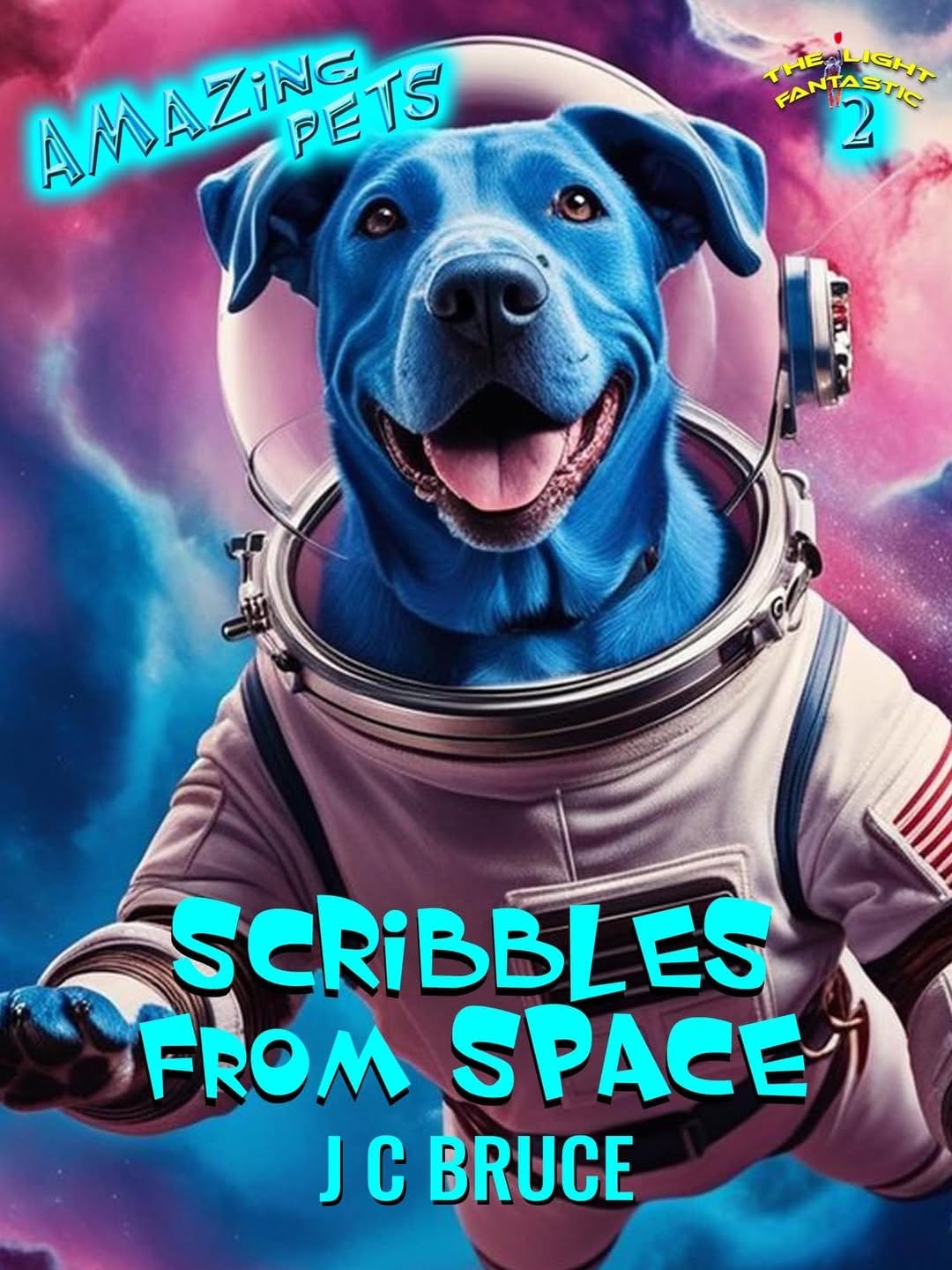T-Rex had a cousin, and it was a dragon
Read on and be the smartest person in the room--or the Zoom
We have two exciting scientific discoveries to report on today.
The first is the unearthing of the brand-new, never-before-seen remains of a prehistoric creature that paleontologists are nicknaming a dragon.
Also: The odds of a particularly large, city-killer-sized asteroid hitting the Earth have now slightly diminished because—get this!—it may crash into the Moon, instead.
And we write about dinosaurs and space rocks at the same time because of their historic and tragic (from the dinos’ point of view) collision of destinies.
And by collision, we mean that literally. Some 66 million years ago, an enormous asteroid plunged into our planet near the Yucatan Peninsula with such ferocity that it wiped out much of the life on the planet—it’s how the dinosaurs became extinct.
Bad news for them, great news for us. It’s unlikely humans would have successfully evolved in a world overrun by massive carnivorous monsters.
Or dragons.
Speaking of which, a newly discovered dinosaur species from Mongolia, called the "Dragon Prince," is rewriting the family history of Tyrannosaurus Rex. Named Khankhuuluu mongoliensis ("Dragon Prince of Mongolia"), the fossil indicates this smaller relative was a direct ancestor of the larger, more famous tyrannosaurs.
The first T-Rex was discovered in Wyoming. Now that we’ve found a distant relative in Asia, scientists say this will help us understand how these gigantic creatures migrated between continents.
Dinosaurs ruled the planet for about 180 million years before they were killed by a six-mile-wide space rock named Chicxulub that collided with Earth. We’d rather prefer that not happen again, so skywatchers are on constant lookout for approaching danger.
Right now, there’s not much we can do about it. But we recently tested the concept of nudging an asteroid out of its orbit—and it worked! So, there’s hope.
But meanwhile, we just watch. And one space rock that captured astronomers’ attention recently is 2024 YR4, which scientists believe had about a one in thirty chance of smashing into us.
Those are frightening odds. By comparison, the chances of getting struck by lightning any given year are about one in 1.2 million.
However, updates to the asteroid’s orbit now indicate it more likely will smack into the Moon instead. It has a 4.3 percent chance of doing so in December 2032, according to NASA.
The impact, if it occurs, would likely create a crater visible from Earth and—not to worry—wouldn't affect the Moon's orbit, we’re assured. Had it collided with Earth, it would have done so with 500 times the power of the atomic bomb dropped on Hiroshima.
Um, yeah, it would have left a mark.
Update
For all you golf fans out there, today, June 12, is the first full day of the U.S. Open Golf tournament. This year it’s being played at the Oakmont Country Club in Pennsylvania. You can spend the next three days watching it on NBC or you can get a life. Your choice.
Planning Ahead
Tomorrow is International Ax Throwing Day. According to the never-wrong internet, there are now at least 360 ax-throwing bars and venues in the U.S. There’s now a World Axe Throwing League with more than 20,000 members. Edgy.
J.C. Bruce is a journalist and author of The Strange Files series of mysterious novels (available on Amazon, Barnes & Noble, Kobo, other online booksellers, and at selected libraries). He also writes a monthly newsletter that will make you the smartest person in the room—or the Zoom. He holds dual citizenship in the United States of America and Florida, and was recently awarded an honorary doctorate from the Lightgate Institute of Extranormal Studies, which he totally made up for his book Strange Timing.








Jeff, really like your "Pete Townsend" type humor. The scientific stuff with the potential catastrophic outcome enables me to actually laugh at the current political events with the same catastrophic outcomes. I liken the near miss in Pennsylvania is sort of like the near miss hitting the moon. I see a lot of similarities. Keep it up you make me smile. Thanks, Greg